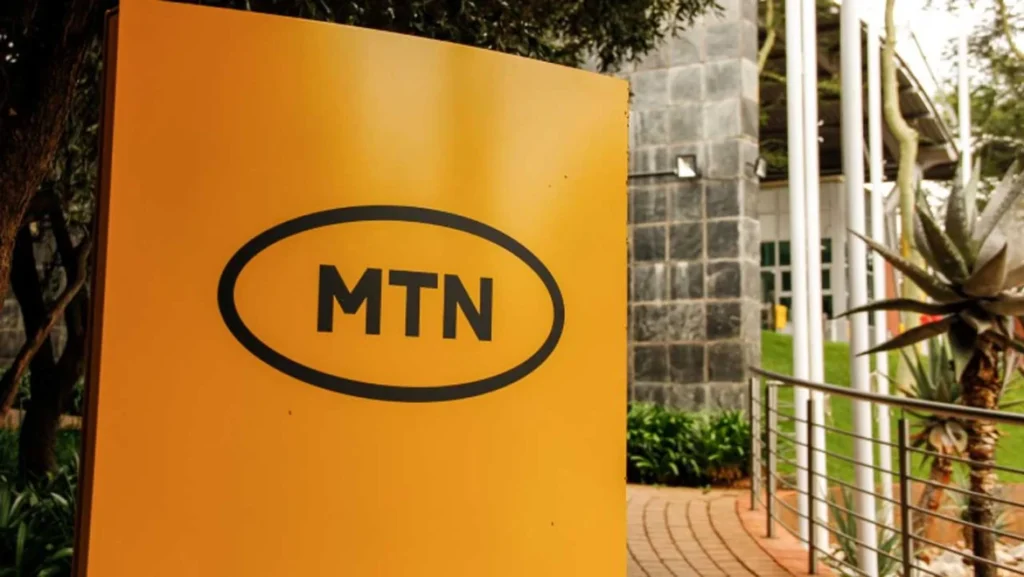MTN Nigeria delivered robust service performance in 2024. Its service revenue surged by approximately 36% year‑on‑year, outpacing ₦3.3 trillion. Operating profit rose slightly, signaling healthy uptake of data and mobile finance services. However, an extreme naira devaluation—from ₦907/US$ at end‑2023 to roughly ₦1,535/US$—generated massive foreign exchange losses of nearly ₦925 billion, derailing profitability and resulting in a staggering ₦400.4 billion net loss.
Balance Sheet Shock: Equity Erosion and Liquidity Risks Intensify
Retained earnings slumped into a deep deficit, worsening from around ₦208 billion negative to roughly ₦607.5 billion. This equity collapse mirrored mounting liabilities and limited operational cushioning. Although free cash flow remained positive due to tight capital discipline, weakened liquidity and negative working capital raised concerns over solvency and supplier reliability.
Q4 Profit Rebound Offers Glimmer of Hope
In a notable fourth-quarter recovery, MTN turned around to post a ₦114.5 billion profit after tax, reversing earlier losses. This bounce underscores the strength of the core business and suggests that once forex volatility subsides, MTN may begin rebuilding its financial position.
Earlier Trends foreshadow Full-Year Collapse
Unaudited figures for the first half of 2024 flagged a ₦576 billion pre-tax loss, reversing the prior-year profit. At the time, forex losses already reached ₦656 billion, diminished only by healthy growth in voice, data, and fintech operations. These early trends repeated later in the year and contributed heavily to the final loss.
Cost Structures Under Pressure from FX-linked Expenses
Several fixed and variable costs escalated due to dollar-linked contracts. Tower leases, vendor agreements, vendor service contracts, and some utility charges spiked in naira terms. Although MTN renegotiated several high-cost contracts—particularly around tower leases—these efforts barely dented the scale of finance charges. Total debt rose approximately 62%, further amplifying interest expense and financial strain.

Resilience Amid Adversity: Operational Strength Persists
MTN sustained subscriber growth—maintaining over 80 million active accounts—while expanding its fintech ecosystem and mobile money services. Despite FX-induced shocks, the company continued investing in digital infrastructure, growing workforce efficiency, and improving operational margins. These factors supported consistent free cash flow generation throughout the year.
Management Actions: Pricing and Cost Rationalisation in Focus
In response to margin compression, MTN Nigeria secured regulatory approval to increase tariffs on voice and data plans. The company also streamlined operations via cost-savings targets at the parent level, aiming to realize savings of between R7 billion and R8 billion. Tower lease renegotiations remain a critical priority, as MTN seeks to mitigate dollar-linked cost exposure.
Macro Challenges: Inflation, FX Tightness, and Interest Burden
Nigeria’s economic backdrop weighed heavily on MTN’s outcome. High inflation, erratic electricity pricing, and constrained official foreign exchange markets created parallel rate volatility. The country’s high interest rate environment further compounded finance costs, making refinancing more expensive. Collectively, these macro forces eroded margin resilience and made debt servicing costly.
Geopolitical and Regulatory Uncertainty Adds Complexity
Changes in foreign-exchange policy, import restrictions, and licensing rules created unpredictability. Advertisers and corporate customers delayed commitments amid economic uncertainty, affecting revenue momentum. Regulatory clarity around tariffs, taxation, and telecom licence renewals remained fluid, posing continuous pressure on planning and execution.
Shareholder & Analyst Caution Signals Dividend Freeze
With retained earnings in deficit and negative equity, MTN cannot distribute dividends, dampening investor returns. Analysts remain cautious, flagging unresolved debt exposure and currency risk as key hurdles. Suppliers and distribution partners face rising credit risk as margins compress across the value chain.
Recovery Outlook Hinges on Stabilizing the Macro Landscape
MTN’s path back to profitability depends on several variables:
-
Stabilisation of the naira or managed depreciation cycles
-
Implementation of approved tariff hikes without regulatory pushback
-
Structural cost reductions via lease renegotiation and procurement reforms
-
Continued subscriber growth and fintech monetisation
-
Return to positive retained earnings and rebuilding of shareholder equity
Successful execution across these areas could enable MTN Nigeria to convert operational strengths into sustainable financial health.
Summary: 2024 Performance Snapshot
| Indicator | Value |
|---|---|
| Service Revenue Growth | ~36% (to ₦3.36TN) |
| Operating Profit | ~₦778B (slight rise) |
| Foreign Exchange Loss | ~₦925B |
| Net Loss | ~₦400.4B |
| Retained Earnings | ~₦607.5B negative |
| Fourth‑Quarter Profit | ₦114.5B |
| Subscriber Base | 80+ million |
| Debt Rise | ~62% increase |
Final Thoughts: Strong Core, Fragile Execution Environment
MTN Nigeria’s 2024 results reveal a contradiction: operational growth and profitable business lines coexist alongside a finance-driven collapse of equity and liquidity. The data underscores the profound impact of currency instability in an import-dependent sector with foreign-currency liabilities.
Looking ahead, success depends on stabilizing macro conditions, cost discipline, pricing flexibility, and execution rigor. If the company can implement its strategic adjustments effectively, it may reclaim financial stability and rebuild shareholder value—anchored on the resilience of its telecom operations.







